Dr. Kenneth F. Swaiman Medical Student Scholarship
To honor the legacy of Dr. Swaiman and his contribution to child neurology, the Child Neurology Foundation (CNF) offers the Dr. Kenneth F. Swaiman Medical Student Scholarship thanks to the support of his wife and pediatric neurologist Dr. Phyllis Sher.
Administered annually, the $6,000 summer research scholarship will be given to each of four (4) U.S. or Canadian medical students who have an interest in exploring a career in child neurology. Travel expenses up to $1,500 will be provided to attend the annual Child Neurology Society meeting. The award will be open to second- or third-year medical students for a basic or clinical research project in child neurology conducted under the direction of a child neurologist.
For more information, visit Research Grant Opportunities.
2024 Dr. Kenneth F. Swaiman Medical Student Scholarship Recipients
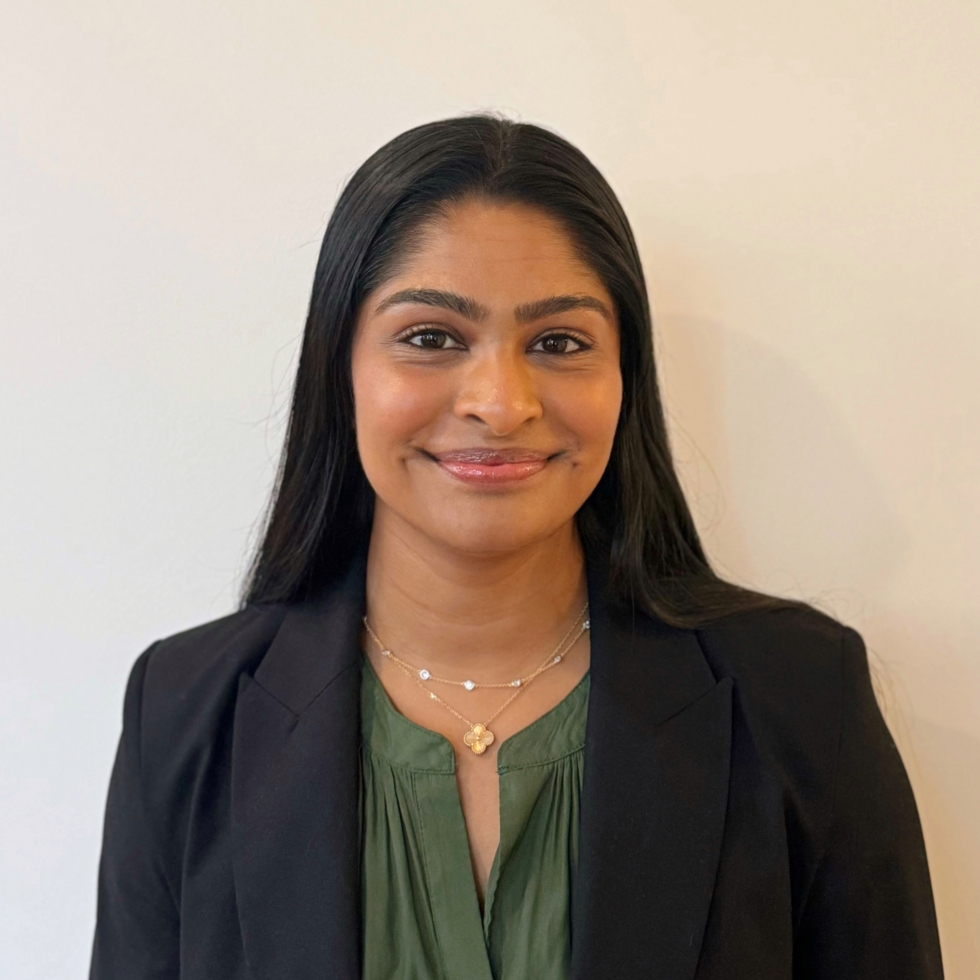
Shanmitha Arun
3rdYear Medical Student,Virginia Commonwealth University
Abstract: “Prefrontal Gamma aminobutyric acid (GABA) levels and working memory deficits in Duchenne Muscular Dystrophy (DMD)”
Mentor: Mathula Thangarajh, MD, PhD
In my career journey, I’m deeply passionate about the intersection of clinical practice and academic research. Academic medicine offers a unique opportunity to integrate these two realms, allowing me to not only provide high-quality patient care but also contribute to the advancement of medical knowledge and innovation through research. By pursuing an academic path alongside clinical practice, I envision contributing to the development of novel therapies, refining diagnostic techniques, and mentoring future generations of healthcare professionals. Through this dual approach, I seek to bridge the gap between research and clinical application, ultimately improving outcomes and enhancing the quality of life for children and families impacted by neuromuscular diseases. The award is a huge honor and fosters my sense of purpose and fuels my dedication to pediatric neurology research and clinical care.
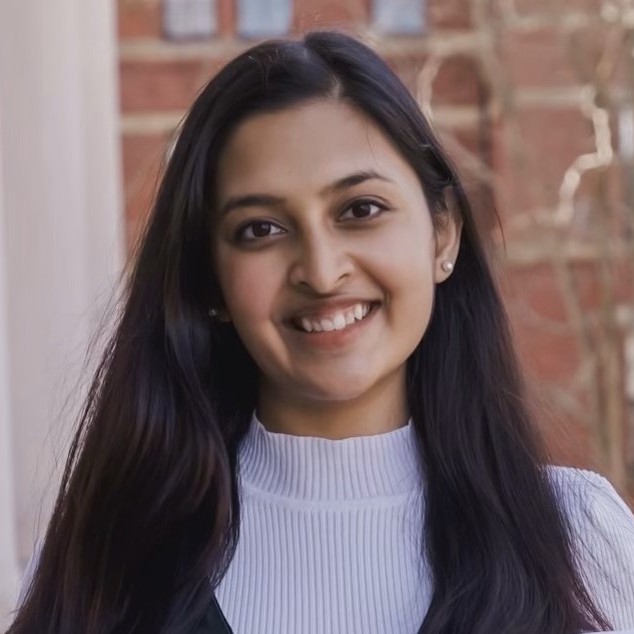
Debolina Ghosh
3rd Year Medical Student, Case Western Reserve University, School of Medicine; The University of Texas at Austin, Dell Medical School
Abstract: “Unveiling the Neural Circuitry of Autism: Understanding the Role of Mediodorsal Thalamic Neurons in Social, Emotional, and Cognitive Behaviors”
Mentor: Audrey Brumback, MD, PhD
I am constantly inspired by children’s remarkable resilience in living with and overcoming illness. Specifically, the plasticity of the developing brain and its astounding response to therapeutics highlights the importance of research in the field of pediatric neurology. Despite groundbreaking advances like gene therapy, our understanding of the underlying pathophysiology (the foundation of treatment development) of childhood neurologic disorders remains incomplete. The incredible Dr. Audrey Brumback and her phenomenal research team at UT Health Austin are working on elucidating the neural circuitry underlying neurodevelopmental conditions like autism. I am so excited to join them in their mission in this summer and to work towards creating a more neuroinclusive world. In terms of my career goals, I have to say that child neurologists are some of my favorite people in this world. They are not just localizers of pathology but also compassionate listeners, tireless advocates, and lifelong cheerleaders. I cannot wait to join the ranks as a future clinician, educator, and researcher. Thank you to the Child Neurology Foundation for this invaluable opportunity and their support of young child neurology enthusiasts like me!
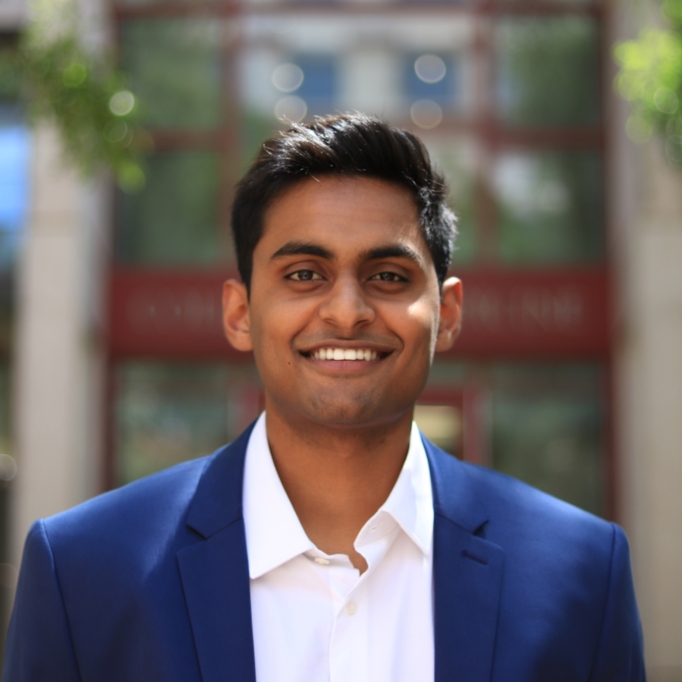
Avaneesh Kunta
3rd Year Medical Student, University of Central Florida
Abstract: “A Retrospective Survey-Based Multicenter Study To Delineate The Molecular And Phenotypic Spectrum Of Epilepsy-Dyskinesia Syndromes In Children”
Mentor: Darius Ebrahimi-Fakhari, M.D., PhD
Witnessing firsthand how clinical research can directly lead to the diagnosis and treatment of patients with rare genetic conditions has motivated me to delve deeper into the field of child neurology. Inspired by my experiences at Boston Children’s Hospital under the mentorship of Dr. Ebrahimi-Fakhari, I am eager to dedicate this upcoming summer to further exploring the molecular and phenotypic spectrum of epilepsy-dyskinesia syndromes in children.
As I near the completion of my second year at the University of Central Florida College of Medicine, I remain strongly committed to pursuing a career in academic medicine. I aim to leverage my engineering background to enhance diagnostic methods and treatment outcomes through innovative, precision-based approaches. I am immensely grateful to my mentor, Dr. Ebrahimi-Fakhari, for his continued guidance and to the Child Neurology Foundation Kenneth F. Swaiman Scholarship for supporting my commitment to advancing patient care.
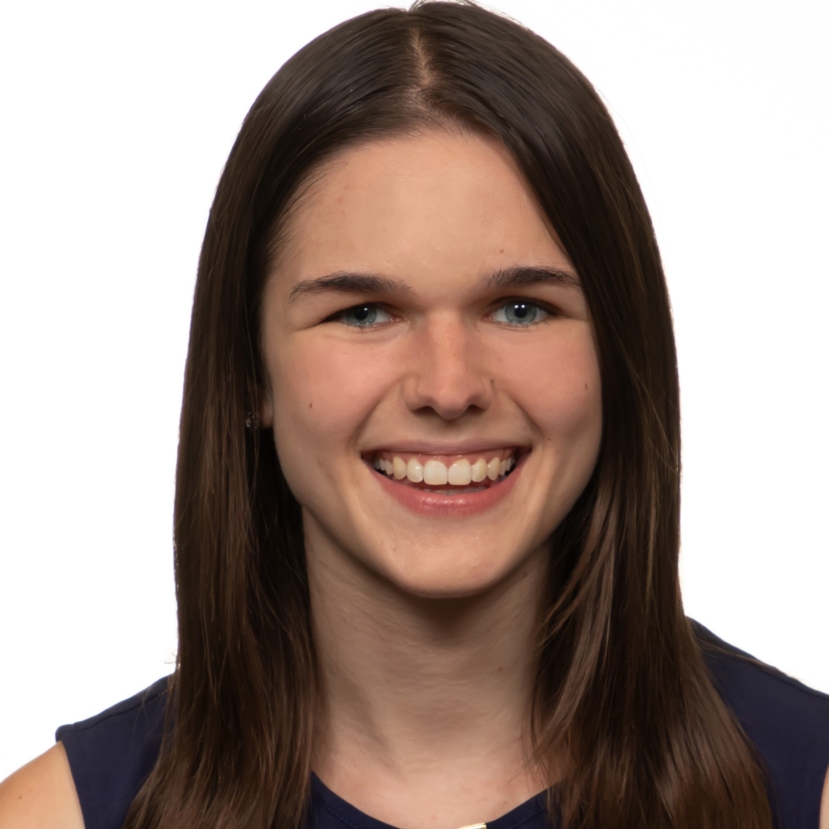
Alyssa Rust
3rd Year Medical Student, Washington University School of Medicine
Abstract: “Creation of a Standardized Motor Exam Protocol for People with Cerebral Palsy”
Mentor:Bhooma Aravamuthan, MD, DPhil
Early in my medical school education, I knew child neurology was the field for me. I enjoyed working with neurodiverse children and was inspired by the resiliency of pediatric patients. I was also excited by how rapidly scientific advancements were being made in the field of neurology and how these developments have improved the lives of countless patients. Over the past few years, I’ve had the pleasure of working with Dr. Bhooma Aravamuthan on research working to address dystonia underdiagnosis and improve diagnostic equity for patients with cerebral palsy. As I enter my fourth year of medical school, I aspire to become a pediatric neurologist who continues to advance research in the field and advocate for my patients to receive the care they need to live their best lives. I also hope to be involved in medical education to inspire future physicians to pursue the rewarding and exciting field of child neurology. I am incredibly grateful to the Child Neurology Foundation and to Dr. Aravamuthan for their generous support of my research this summer.
2023 Dr. Kenneth F. Swaiman Medical Student Scholarship Recipients
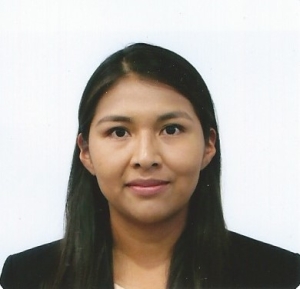
Child Neurology Foundation 2023 Swaiman Scholarship Recipient Tracy De Los Santos
I am working in collaboration with applicant Lizbeth Alvarez, MPH. Reports have shown that the number of individuals with disabilities is increasing disproportionately with the number of medical providers who have at least some familiarity with this population. We hope to address this issue by establishing an elective course about caring for individuals with disabilities that we hope to eventually have incorporated into the iExplore curriculum at the University of California, Davis School of Medicine. Through pre and post-surveys we want to explore and assess the changes in attitudes, beliefs, knowledge, and comfort in providing care to individuals with disabilities and their families over time, as a result of taking our course.
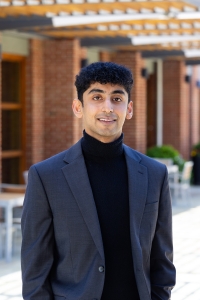
Child Neurology Foundation 2023 Swaiman Scholarship Recipient Ashwin Mahesh
I am a current first year medical student and aspiring neurologist passionate about the intersection between social disparities, data science, and clinical practice. I am eager to learn data-centered approaches to uncovering disparity and to directly fuel interventions to serve patients in need.
In my future career as a neurologist, I am determined to make an impact on systemic inequity through clinical practice, research, community intervention development, and policy advocacy. Prior to medical school, I had the privilege of cofounding and directing the expansion of a free medical clinic network in Charlottesville dedicated to serving patients experiencing homelessness. My experiences in Charlottesville have sparked a determination within me to further investigate ways in which Health System interventions can lead to drastic improvements in social disparities and systemic neglect. This work has further informed my current work building a similar medical clinic network in NYC. In my future as a neurologist, I am eager to continue learning methods to uncover disparity and to partner with our patients to build evidence-based systems of support.
I am drawn to neurology for many reasons. Not only am I fascinated by the brain and our nervous system, but the rapid advances in neurological discovery over the last two decades excites me. Many of these discoveries have led to incredible impacts on patient care and have worked to ameliorate pain that many of our patients face each day. As a future neurologist and scientist, I hope to work alongside my colleagues to contribute to discovery in this amazing field and make a real difference for patients experiencing pain.
I am incredibly thankful to the Child Neurology Foundation for the opportunity to partner this summer, to learn from my mentor Dr. Zachary Grinspan, and to work together towards our common goal of improving outcomes for children with neurological conditions.
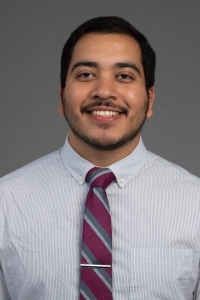
Child Neurology Foundation 2023 Swaiman Scholarship Recipient Ernesto Luna Melendez
There is no question that the human brain is the most complex and fascinating organ. I entered medical school with a deep fascination for the brain and learning more about it clinically has only reinforced that interest. Unfortunately, neurological diseases remain as some of the most devastating and complex pathologies that affect adults and children alike. As a future physician, I aspire to have a career in which I can help advance our understanding of neurological diseases and make a significant impact in the lives of my patients. I am particularly interested in the field of pediatric neuro-oncology and hope to be involved in efforts to develop new therapies for children affected by brain tumors. I am immensely grateful to the Child Neurology Foundation and Dr. Phyllis Sher for their generous support of my research in pediatric neurological malignancies.
2022 Inaugural Dr. Kenneth F. Swaiman Medical Student Scholarship Recipients
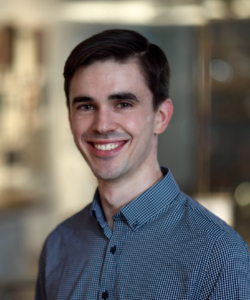
Congratulations, Daniel Connolly, an MD/PhD candidate at University of Pennsylvania Perelman School of Medicine!
When asked about his career goals, Daniel had the following to say:
“I am pursuing MD-PhD training to prepare for a career devoted to improving our understanding of childhood neurological disorders through basic research and applying this knowledge in clinical practice. Basic research on brain function and disease is essential for the development of new therapies, and as a future physician-scientist I hope to be deeply involved in this process, developing new knowledge in the laboratory and helping apply it in the clinic. After completing my training, I plan to pursue a career in academic medicine, spending time in the lab studying basic mechanisms of childhood neurological disorders and the rest of my time in the clinic seeing children affected by these conditions. I hope to make meaningful improvements in the lives of my future patients and their families, and I hope that my discoveries in the lab will positively impact the lives of many future patients as well.”
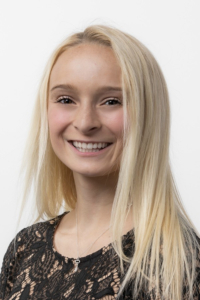
Congratulations, Alyssa Edwards, MPH, an MD candidate at Case Western Reserve University, School of Medicine!
Alyssa Edwards is a second-year medical student at Case Western Reserve University School of Medicine. She holds an MPH as well as a BA in cognitive science and a minor in psychology from Case Western Reserve University. Alyssa’s past and current research interests are in autism spectrum disorder, neuroimaging, global health, and health disparities in individuals with developmental disabilities.
Prior to starting medical school, she has had a diverse background in research: from tracing the underlying causes of Autism using cerebral organoids at the Jackson Laboratory, looking at genetic markers associated with prostate cancer through the Case Comprehensive Cancer Center, to traveling to Ghana where she spent three months researching biomarkers associated with resistance to malaria.
Alyssa’s initial motivations for neurodevelopmental research stemmed from growing up with her cousin who has an intellectual developmental disorder. This passion further led her to spend over 500+ hours volunteering for Ohio Special Olympics. Her involvement in Special Olympics showed her how providing intimate personal connections is just as important as discovering scientific breakthroughs, and it is her desire to continue these types of relationships with her patients in the future.
She is currently working with Dr. Alexander Cohen at Boston Children’s Hospital on a study where she will use coordinate network mapping to determine brain networks most associated with stimulant use in patients with ADHD. Alyssa is excited for a career in which she can continue to follow her passions for neurodevelopmental disabilities with hopes of making a significant impact in the field of child neurology.
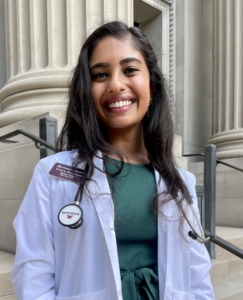
Congratulations, Geetanjali Rajamani, an MD candidate at University of Minnesota Medical School!
When asked about her career goals, Geetanjali had the following to say:
“As my first year at the University of Minnesota Medical School draws to a close, I have been able to reflect on the variety of clinical specialties I have been exposed to. In particular, child neurology stands out to me. I am mesmerized by the capacity of the human brain to perform functions we take for granted in a matter of milliseconds; I enjoy the puzzle-like manner in which neurologists correlate clinical symptoms to brain anatomy. I hope to use my love for the human brain to help children with neurologic conditions go on to live beautiful lives. I aspire to have a career in which I can make meaningful clinical impact on kids and advance research regarding devastating neurologic diseases. I am extremely grateful to the Child Neurology Foundation for their generous support of my research this summer – thank you!”
